

11 Apr 23
Asthma is a chronic respiratory disease that affects millions of people worldwide. It is characterized by inflammation and narrowing of the airways, leading to symptoms such as coughing, wheezing, and shortness of breath. Asthma management involves regular monitoring of symptoms, lung function, and medication use to ensure optimal control of the disease. Spirometry is a common diagnostic tool used in asthma management to measure lung function. However, traditional spirometry methods have limitations in terms of accuracy and efficiency. In recent years, smart spirometry devices have emerged as a promising solution for improving data accuracy in asthma management, particularly in asthma camps.
Smart spirometry is a type of spirometry that uses electronic devices to measure lung function. These devices are equipped with sensors that capture and analyze airflow data during breathing tests. Smart spirometry devices are designed to be portable, easy to use, and can be operated without the need for specialized training. They also provide real-time feedback on test results, allowing healthcare providers to monitor changes in lung function over time.
Smart spirometry devices come in various shapes and sizes, ranging from handheld devices to smartphone apps. Handheld devices are the most commonly used smart spirometry devices in asthma camps. These devices are compact and easy to transport, making them ideal for use in remote or outdoor settings. Smartphone apps are also becoming popular as they provide a more user-friendly interface and can be integrated with other health monitoring tools.
Smart spirometry devices offer several advantages over traditional spirometry methods in asthma camps. First, they provide more accurate and consistent measurements of lung function. Traditional spirometry methods are prone to errors due to variability in user technique and calibration of equipment. Smart spirometry devices use advanced algorithms to correct for these factors, resulting in more reliable data.
Second, smart spirometry devices are more efficient and time-saving than traditional spirometry methods. Smart spirometry tests take less time to perform and require fewer resources, allowing healthcare providers to screen more patients in a shorter period. This is particularly important in asthma camps, where resources are limited, and time is of the essence.
Finally, smart spirometry devices are more accessible to patients than traditional spirometry methods. Patients can easily perform self-tests using handheld devices or smartphone apps, reducing the need for in-person visits to healthcare providers. This is especially useful in remote or underserved areas where access to healthcare is limited.
The main difference between smart spirometry and traditional spirometry is the technology used to measure lung function. Traditional spirometry methods use mechanical devices to capture and analyze airflow data. Smart spirometry devices, on the other hand, use electronic sensors to capture and analyze airflow data. This allows for more accurate and consistent measurements of lung function.
Another difference is the user interface. Traditional spirometry methods require specialized training and expertise to operate. Smart spirometry devices, on the other hand, are designed to be user-friendly and can be operated by patients with minimal training.
Accurate data is essential for effective asthma management. It allows healthcare providers to monitor changes in lung function and adjust treatment plans accordingly. Inaccurate data, on the other hand, can lead to misdiagnosis, inappropriate treatment, and poor health outcomes.
The consequences of using inaccurate data to manage asthma can be severe. For instance, incorrect dosages of medication or improper management of symptoms can lead to worsening of the condition and an increased risk of hospitalization. In some cases, it can even be life-threatening. This is why it's crucial to use reliable and accurate data when managing asthma.
Smart spirometry offers a promising solution to this issue by providing highly accurate and objective measurements of lung function. By using this technology, healthcare providers can make informed decisions about asthma treatment, which can ultimately lead to improved patient outcomes.
Implementing smart spirometry in an asthma camp requires careful planning and coordination. Here are some steps that can help healthcare providers successfully integrate this technology into their existing protocols:
Numerous case studies have demonstrated the benefits of using smart spirometry in asthma camps. One study published in the Journal of Asthma found that the use of smart spirometry led to a significant improvement in data accuracy compared to traditional spirometry methods. Another study published in the Journal of Telemedicine and Telecare found that the use of smart spirometry improved patient outcomes and reduced healthcare costs.
Patients have also reported positive experiences with smart spirometry. Many have found the device easy to use and appreciate the increased accuracy of their lung function measurements.
Ongoing research into smart spirometry continues to improve our understanding of this technology's potential in asthma management. For example, researchers are exploring the use of smart spirometry to predict asthma exacerbations, enabling healthcare providers to intervene before symptoms become severe. Additionally, advancements in machine learning and artificial intelligence could enable even more accurate and reliable measurements of lung function.
Smart spirometry has the potential to revolutionize the way we manage asthma. By providing highly accurate and objective measurements of lung function, healthcare providers can make informed decisions about treatment that can improve patient outcomes and reduce healthcare costs.
As with any technology, the successful implementation of smart spirometry requires careful planning, training, and integration with existing protocols. However, for asthma camps seeking to improve the accuracy of their data and ultimately provide better care for their patients, smart spirometry represents a promising solution.
In conclusion, smart spirometry has the potential to improve the accuracy of data in asthma camps and lead to better outcomes for patients. As the technology continues to develop, we can expect to see even more exciting advancements in the field of asthma management.
